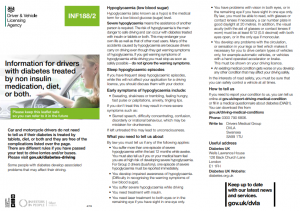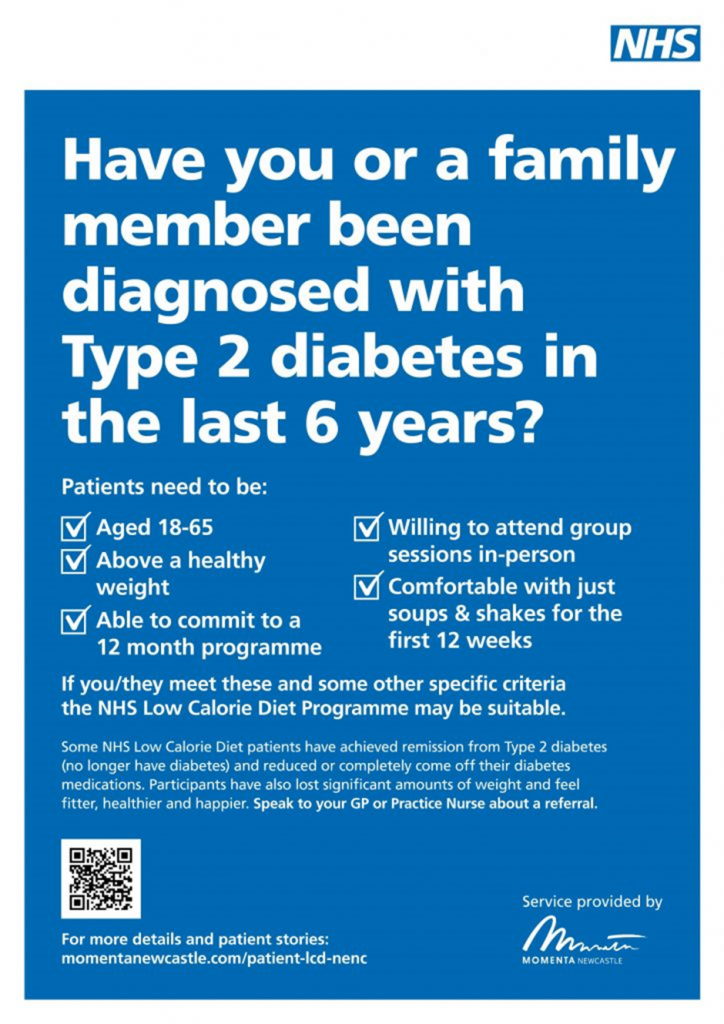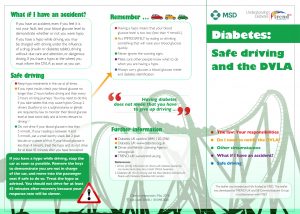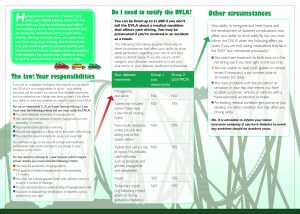Led by Dr Speed-Andrews and C Alderson.
We generally ask patients to attend annually for blood tests and monitoring with one of our Clinical Staff and annually for a GP / Pharmacist review.
Upon initial diagnosis, patients are offered the opportunity for referral to Diabetic Education sessions. Diabetic patients also are invited for annual Eye Screening and Foot reviews.
Diabetes
- type 1 diabetes – where the body’s immune system attacks and destroys the cells that produce insulin
- type 2 diabetes – where the body doesn’t produce enough insulin, or the body’s cells don’t react to insulin
Most people would be shocked to know that around 22,000 people with diabetes die early every year. Type 2 diabetes is a leading cause of preventable sight loss in people of working age and is a major contributor to kidney failure, heart attack, and stroke.
There are currently 3.4 million people with Type 2 diabetes in England with around 200,000 new diagnoses every year. While Type 1 diabetes cannot be prevented and is not linked to lifestyle, Type 2 diabetes is largely preventable through lifestyle changes.
One in six of all people in hospital have diabetes – while diabetes is often not the reason for admission, they often need a longer stay in hospital, are more likely to be re admitted and their risk of dying is higher.
As well as the human cost, Type 2 diabetes treatment accounts for just under nine per cent of the annual NHS budget. This is around £8.8 billion a year.
There are currently five million people in England at high risk of developing Type 2 diabetes. If these trends persist, one in three people will be obese by 2034 and one in 10 will develop Type 2 diabetes.
There is strong international evidence which demonstrates how behavioural interventions, which support people to maintain a healthy weight and be more active, can significantly reduce the risk of developing the condition.
During pregnancy, some women have such high levels of blood glucose that their body is unable to produce enough insulin to absorb it all. This is known as gestational diabetes.
Legally, if you have diabetes and using Insulin and / or taking medication that can cause Hypo’s (e.g. Gliclazide) and you drive, you need to:
- check your blood glucose no longer than 2 hours before driving
- check your blood every 2 hours if you’re on a long journey
- travel with sugary snacks and snacks with long-lasting carbs, like a cereal bar or banana
If you feel your levels are low:
- stop the car when it’s safe
- remove the keys from the ignition
- get out of the driver’s seat
- check your blood glucose and treat your hypo
- don’t drive for 45 minutes after you start to feel better
Important
You’ll also need to let the DVLA know you have diabetes. This won’t stop you driving – they just need to be aware that you’re on insulin.

Pre-diabetes
Many more people have blood sugar levels above the normal range, but not high enough to be diagnosed as having diabetes. This is sometimes known as pre-diabetes. If your blood sugar level is above the normal range, your risk of developing full-blown diabetes is increased. It’s very important for diabetes to be diagnosed as early as possible because it will get progressively worse if left untreated.
The Healthier You: NHS Diabetes Prevention Programme (NHS DPP) identifies those at high risk and refers them onto a behaviour change programme.
The NHS DPP is a joint commitment from NHS England, Public Health England and Diabetes UK.
These patients are also invited to attend for annual blood tests.
Link to further information on NHS Website – https://www.nhs.uk/conditions/diabetes/
Lifestyle Education for diabetes See Sound Doctor in the Self Care and Information section of the website for a Diabetes Course that is available and is Education about Self-Management of Diabetes.
Self-referral to Healthy Living for people with type 2 diabetes
Please signpost your patients to Healthy Living, a free web-based NHS structured education programme, clinically proven to help users to live well with type 2 diabetes. It can help users to feel confident in managing diabetes, improve mental wellbeing, and make and maintain healthy lifestyle choices.
My Type1 Diabetes
MyType1 Diabetes is a free online resource with tailored support to help adults in England live well with their type 1 diabetes.
It can help patients understand more about type 1 diabetes and increase their confidence in managing their condition through e-learning, signposting to local services and a wide-range of content available in 10 different languages including Polish, Spanish and Urdu.
The programme is for people over the age of 18, with type 1 diabetes and can be accessed by individuals, families, carers, and healthcare professionals.
The NHS Low Calorie Diet Programme
for people living with Type 2 Diabetes





